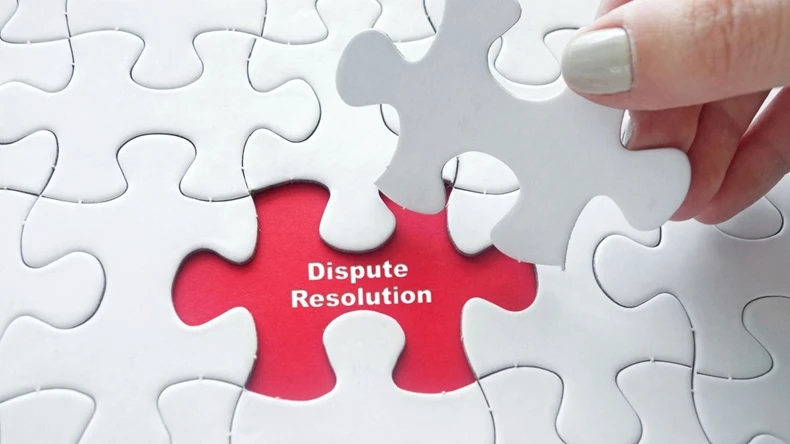Psychosynthesis Aotearoa New Zealand and Australia
Disputes Resolution Procedure
You can also download the entire Disputes Resolution Procedure document here (pdf)

PAnzA Disputes Resolution Procedure
The ethic of right relating will inform all parties in any disputes resolution process.
PAnzA is aligned with the principles and rules of natural justice. This means that all parties are treated fairly and decisions affecting rights are made using fair processes.
This document pertains to disputes as distinct from clinical complaints, for clinical complaints please refer to the PAnzA Complaints Procedure.
1. How Complaint is Made
1. A member or an officer may make a complaint by giving to the committee (or a complaints subcommittee or ethics convener) a notice in writing that —
a. states that the member or officer is starting a procedure for resolving a dispute in accordance with the society’s constitution; and
b. sets out the allegation to which the dispute relates and whom the allegation is against; and
c. sets out any other information reasonably required by the society.
2. The society may make a complaint involving an allegation against a member or an officer by giving to the member or officer a notice in writing that —
a. states that the society is starting a procedure for resolving a dispute in accordance with the society’s constitution; and
b. sets out the allegation to which the dispute relates.
3. The information given under subclause 1b. or 2b. must be enough to ensure that a person against whom an allegation is made is fairly advised of the allegation concerning them, with sufficient details given to enable them to prepare a response.
4. A complaint may be made in any other reasonable manner permitted by the society’s constitution for example private mediation.
2. Person who makes complaint has right to be heard
1. A member or an officer who makes a complaint has a right to be heard before the complaint is resolved or any outcome is determined.
2. If the society(PAnzA) makes a complaint —
a. the society has a right to be heard before the complaint is resolved or any outcome is determined; and
b. an officer may exercise that right on behalf of the society.
3. Without limiting the manner in which the member, officer, or society may be given the right to be heard, they must be taken to have been given the right if —
a. they have a reasonable opportunity to be heard in writing or at an oral hearing (if one is held); and
b. an oral hearing is held if the decision makers consider that an oral hearing is needed to ensure an adequate hearing; and
c. an oral hearing (if any) is held before the decision makers; and
d. the member’s, officer’s, or society’s written statement or submissions (if any) are considered by the decision makers.
3. Person who is subject of complaint has right to be heard
1. This clause applies if a complaint involves an allegation that a member, an officer, or the society (the respondent) —
a. has engaged in misconduct; or
b. has breached, or is likely to breach, a duty under the society’s constitution or bylaws or the Incorporated Societies Act 2022; or
c. has damaged the rights or interests of a member or the rights or interests of members generally.
2. The respondent has a right to be heard before the complaint is resolved or any outcome is determined.
3. If the respondent is the society, an officer may exercise the right on behalf of the society.
4. Without limiting the manner in which a respondent may be given a right to be heard, a respondent must be taken to have been given the right if —
a. the respondent is fairly advised of all allegations concerning the respondent, with sufficient details and time given to enable the respondent to prepare a response; and
b. the respondent has a reasonable opportunity to be heard in writing or at an oral hearing (if one is held); and
c. an oral hearing is held if the decision maker considers that an oral hearing is needed to ensure an adequate hearing; and
d. an oral hearing (if any) is held before the decision maker; and
e. the respondent’s written statement or submissions (if any) are considered by the decision maker.
4. Investigating and determining dispute
1. The society must, as soon as is reasonably practicable after receiving or becoming aware of a complaint made in accordance with its constitution, ensure that the dispute is investigated and determined.
2. Disputes must be dealt with under the constitution in a fair, efficient, and effective manner.
5. Society may decide not to proceed further with complaint
Despite the clause ‘Investigating and determining dispute’ above, the society may decide not to proceed further with a complaint if —
a. the complaint is trivial; or
b. the complaint does not appear to disclose or involve any allegation of the following kind:
i. that a member or an officer has engaged in material misconduct:
ii. that a member, an officer, or the society has materially breached, or is likely to materially breach, a duty under the society’s constitution or bylaws or the Incorporated Societies Act 2022:
iii. that a member’s rights or interests or members’ rights or interests generally have been materially damaged:
c. the complaint appears to be without foundation or there is no apparent evidence to support it; or
d. the person who makes the complaint has an insignificant interest in the matter; or
e. the conduct, incident, event, or issue giving rise to the complaint has already been investigated and dealt with under the constitution; or
f. there has been an undue delay in making the complaint.
6. Society may refer complaint
1. The society may refer a complaint to —
a. a subcommittee or an external person to investigate and report; or
b. a subcommittee, an arbitral tribunal, or an external person to investigate and make a decision.
2. The society may, with the consent of all parties to a complaint, refer the complaint to any type of consensual dispute resolution (for example, mediation, facilitation, or a tikanga-based practice).
7. Decision makers
A person may not act as a decision maker in relation to a complaint if 2 or more members of the committee or a complaints subcommittee consider that there are reasonable grounds to believe that the person may not be —
a. impartial; or
b. able to consider the matter without a predetermined view.
